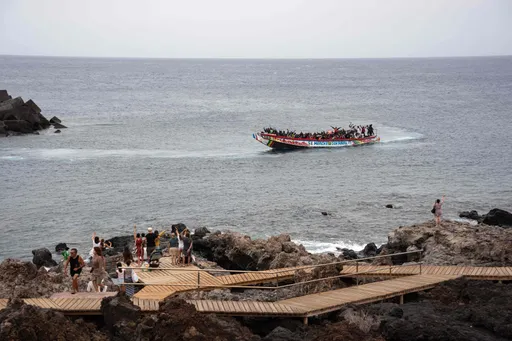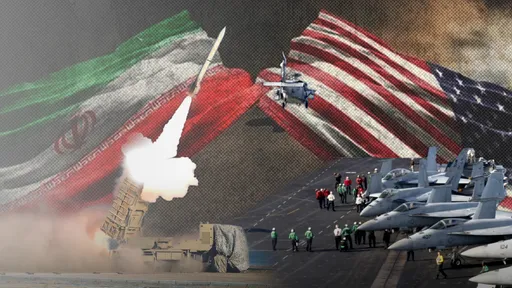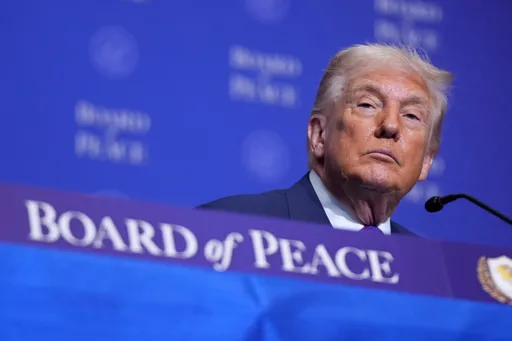The fear that a conflict between India and Pakistan could spill over into a nuclear clash has always worried people both within and outside the two nuclear-armed states. It is worth looking in more detail at the military capabilities of both countries.
Compared to Pakistan, India has a larger conventional military capability. However, both countries have comparable nuclear arsenals.
India's nuclear policy and capability
India is estimated to have an arsenal of 130-140 nuclear weapons, according to a report by the Stockholm International Peace Research Institute (SIPRI) in 2018.
In 1967, India started its nuclear weapon programme. The country tested its first nuclear weapon in 1974, setting of an arms race with Pakistan.
India's nuclear weapons are believed to be plutonium-based. As of 2015, its weapon-grade plutonium stockpile is estimated to be between 570 and 600 kilograms.
India has plans to build six fast breeder reactors, which will significantly increase its capacity to produce more weapons-grade plutonium.
India's nuclear-powered ballistic missile submarine, INS Arihant, became operational last year, giving the country a nuclear triad - the ability to launch nuclear weapons by land, air and sea.
India is building long-range ballistic missiles that are able to strike targets across China, another of India’s regional adversaries.
India has a 'no first use' policy, meaning it has pledged not to strike first. It's strategy is to make retaliatory strikes so strong that any combatant would be unable to strike back.
Pakistan's nuclear policy and capability
In 1972, Pakistan launched its nuclear weapon programme in reaction to India’s and carried out its first nuclear test in 1998.
Pakistan has between 140-150 nuclear weapons for delivery by aircraft and land-based missiles, according to a SIPRI report in 2018.
Pakistan is the only Muslim country that has nuclear weapons.
Pakistan reportedly, in peacetime, stores its nuclear warheads separately from their delivery vehicles. The Strategic Plans Division (SPD), which operates Pakistan's nuclear forces, has never confirmed the arrangements.
The country's current warhead designs are believed to contain highly enriched uranium (HEU). The country still produces HEU for military purposes and its total stockpile was estimated at 2,700 and 3,500 kilograms in 2014. The enrichment takes place at the gas centrifuge facilities located at Kahuta and Gadwal in Punjab, Pakistan's most populous province.
Pakistan is currently working on seaborne cruise missiles to complete its own triad.
Pakistan has longer-range nuclear weapons, such as the Shaheen 3 missile, a type of nuclear weapon that is capable of reaching India's Andaman Islands near Southeast Asia.
Pakistan has not stated a 'no first use' policy and there are unknown details about its nuclear doctrine.
Future scenarios in the light of nuclear weapons
An adjunct senior at the Washington DC-based Federation of American Scientists, Ankit Panda said: "I think the most important thing to take away about the nuclear capabilities is that they both hold each other vulnerable, which means a nuclear conflict in South Asia would be devastating.”
He added: "They can hit each other's key urban centres.”
Grace Liu, a research associate at the James Martin Center for Nonproliferation Studies said: "Pakistan tends to use its nuclear capabilities to act as a deterrent for any kind of military intervention by India."
She added: "If there had to be a first use between India and Pakistan, it would seem that it would be by Pakistan."
However, Pakistan has never publicly stated its stance.
Despite it's 'no first use' policy, India could still strike first. A prominent nuclear physicist based in Islamabad, Pervez Hoodbhoy, said: "You can always come back later and say 'we had been provoked to this point."
Pakistan developed nuclear power in reaction to India's 'possible attempt' to strike. Which means both countries have the power to attack each other's territories and cause cosmic damage and massive loss of life.























